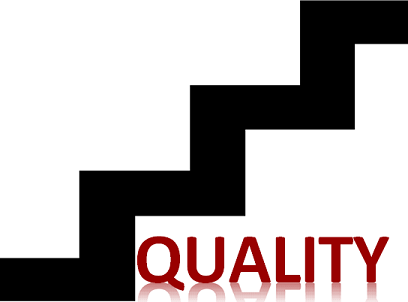The Next Level of Quality
December 13, 2018
LNS Research, a research and advisory firm, coined the term Quality 4.0.1. Quality 4.0 is a method for using technology to show that quality should really be a company-wide strategy with the executives at the helm driving performance.
Quality 4.0 does not replace traditional quality methods, but rather builds and improves upon them.
Quality 4.0 blends new technologies with traditional quality methods to arrive at new optimums in operational excellence, performance, and innovation. The new technologies include Machine Learning/artificial intelligence, connected devices and operations, new forms of collaboration like blockchain, Big Data, Cloud computing, and various apps.
These technologies are not unique to quality, and many companies have initiatives around these technologies. What quality teams may not be aware of is that 23% of these initiatives are focused on quality improvement. When everyone is looking at quality performance, they all look at the inherent risks and their responsibility for delivering quality. Now quality is everyone’s job.
Quality 4.0 focuses on the data required to monitor quality performance including the costs of both good and bad quality. Many companies have begun to increase the resolution of the data they collect. Companies focused on Quality 4.0 primarily inspect their suppliers’ quality and processes to circumvent downstream quality issues.
Instead of waiting for a machine to wear out, these companies monitor machines for symptoms of an impending problem and maintain them ahead of time to ensure high performance at all times. And, instead of identifying that the root cause of a quality failure was poor performance by an operator, these companies either train their operators more effectively or introduce automation for jobs that suffer from repeat challenges.
Quality 4.0 Background
Quality 4.0 is a reference to Industry 4.0.
The First Industrial Revolution embodied three revolutionary changes: machine manufacturing, steam power and the move to city living for people who had previously been agriculturalists.
During the Second Industrial Revolution, the production line and mass manufacturing drastically reduced the cost of consumer and industrial products.
The Third Industrial Revolution was barely a revolution as electronics and control systems gradually penetrated manufacturing, allowing greater flexibility and more sophisticated products at a significantly lower cost.
The Fourth Industrial Revolution is happening around us right now. It extends the digital impact of the Third Industrial Revolution and merges it with the physical and natural worlds. The critical technology changes listed in the intro, including advances in data, analytics, connectivity, scalability, and collaboration have enabled this.
As the Fourth Industrial Revolution takes hold, it will impact everything that we do. It connects people, machines and data in new ways, it democratizes technologies that were previously only accessible to the specialized few, and ushers in transformative capabilities such as those in analytics, material science, and connectivity. For quality, these technologies are important because they enable the transformation of culture, leadership, collaboration, and compliance.
Benefits of Quality 4.0
- A Quality 4.0 strategy is an excellent opportunity to realign quality to corporate strategy.
Many manufacturers have strategic objectives related to Big Data and Industry 4.0, often featuring quality improvement use cases. Only 16% of the current market sees a clear and compelling connection between quality and corporate strategy, making this an excellent opportunity to both change that perception and to redirect quality.
- An effective Quality 4.0 strategy enables organizations to overcome long-standing hurdles.
Many have been plagued by the same persistent quality challenges, lack of data-driven quality decisions, and insufficient cross-functional visibility into quality. Adopting Quality 4.0 assists in overcoming at least some of these hurdles with increased data transparency and new and high veracity data-driven insights.
- A strategy is necessary to ensure success.
Quality 4.0 technologies must build upon a solid traditional quality foundation. Automating processes with poor data often results in making a lot of poor decisions quickly.
- Most importantly, manufacturers that are currently applying the technologies in Quality 4.0 are seeing real value.
The value of Quality 4.0 comes in the form of improved quality, cost savings, efficiency, market share, and brand recognition. The technologies enable new approaches and answers to traditional organizational and value chain quality challenges.
Jacob, Dan. (2017). “What is Quality 4.0?”. Retrieved from https://blog.lnsresearch.com/quality40.
